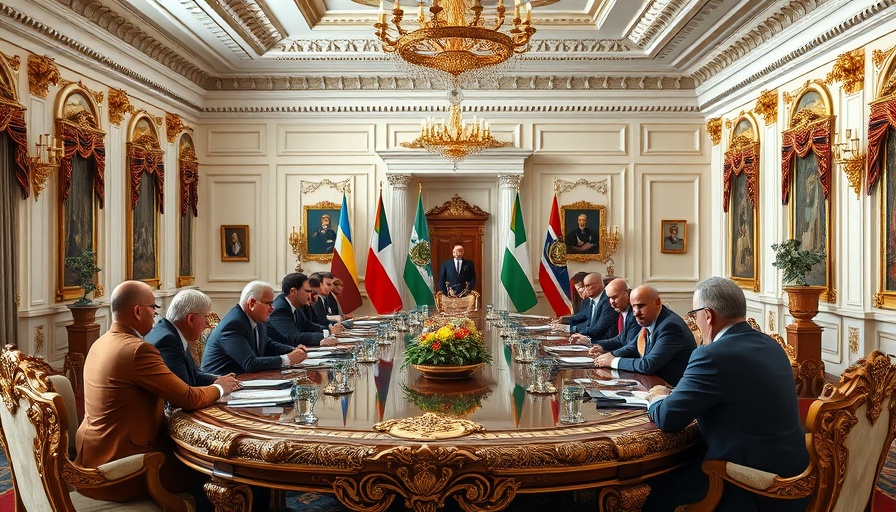
The Historic Deal: Qatar Airways and Boeing
In a remarkable display of international commerce, Qatar Airways has announced a monumental deal to purchase up to 210 Boeing jets. This agreement marks a significant milestone, not only for Boeing but for the aviation industry as a whole, as it represents the largest order of jets in the company's illustrious history. During President Trump’s recent visit to the Arabian Peninsula, this agreement was announced, shining a light on the growing economic and defense ties between the United States and Qatar.
Unpacking the Value of the Agreement
Initially touted at a staggering $200 billion by President Trump, the White House later clarified that the actual value of the order stands at around $96 billion. This discrepancy has led to discussions about the implications of such high-stakes negotiations. Despite the variations in reported figures, the deal encompasses not just the jets themselves but also partnerships with key players in aerospace, including GE Aerospace, responsible for manufacturing the jets’ engines.
A Defense Agreement with Broader Implications
Alongside the jet purchase, the United States and Qatar solidified a defense cooperation agreement that saw commitments including a $1 billion investment for counter-drone systems and nearly $2 billion for remotely piloted aircraft systems. This partnership with defense firms like Raytheon and General Atomics indicates a strategic alignment between the two countries in facing current global threats. It also reinforces Qatar's role as a critical ally in regional security.
The Economic Ripple Effect
According to the Trump administration, the total agreements between the U.S. and Qatar have generated an economic exchange estimated to exceed $1.2 trillion. While this figure remains contentious and somewhat vague, it emphasizes a larger trend of investment in the Gulf region. Past partnerships have shown that such agreements can lead to increased economic activity—not just in the aviation sector but across various industries, including technology and construction.
Current Events: What it Means for Global Relations
This significant arms deal and economic partnership come at a time of heightened geopolitical tensions, with various countries scrutinizing their alliances and defense strategies. The evolving dynamics led by major players like Qatar present an intricate tapestry of opportunity and challenge for global relations. Understanding these relationships is vital for parents, adults, and travelers, offering insights into the future of international travel and economic stability.
Cultural Implications and Human Interest
For many families and individuals, the implications of such international agreements extend beyond economics and defense. They shape perceptions of travel destinations, influence business opportunities, and create pathways to cultural exchanges. As Qatar Airways expands its fleet, the potential for more connections worldwide may enhance travel flexibility, ultimately benefiting global citizens seeking connections around the world.
Conclusion: The Path Forward
The recent agreement between Qatar Airways and Boeing signifies more than just a purchase of aircraft. It represents a deepening relationship between two nations, rooted in mutual economic and security interests. As global citizens, staying aware of such developments is crucial, not just for understanding international relations but for anticipating changes that may affect travel, trade, and our everyday lives. This case exemplifies how geopolitical actions can have extensive ramifications, encouraging readers to engage with and inform themselves about the intertwined nature of global affairs.
 Add Row
Add Row  Add
Add 




 Add Row
Add Row  Add
Add 

Write A Comment